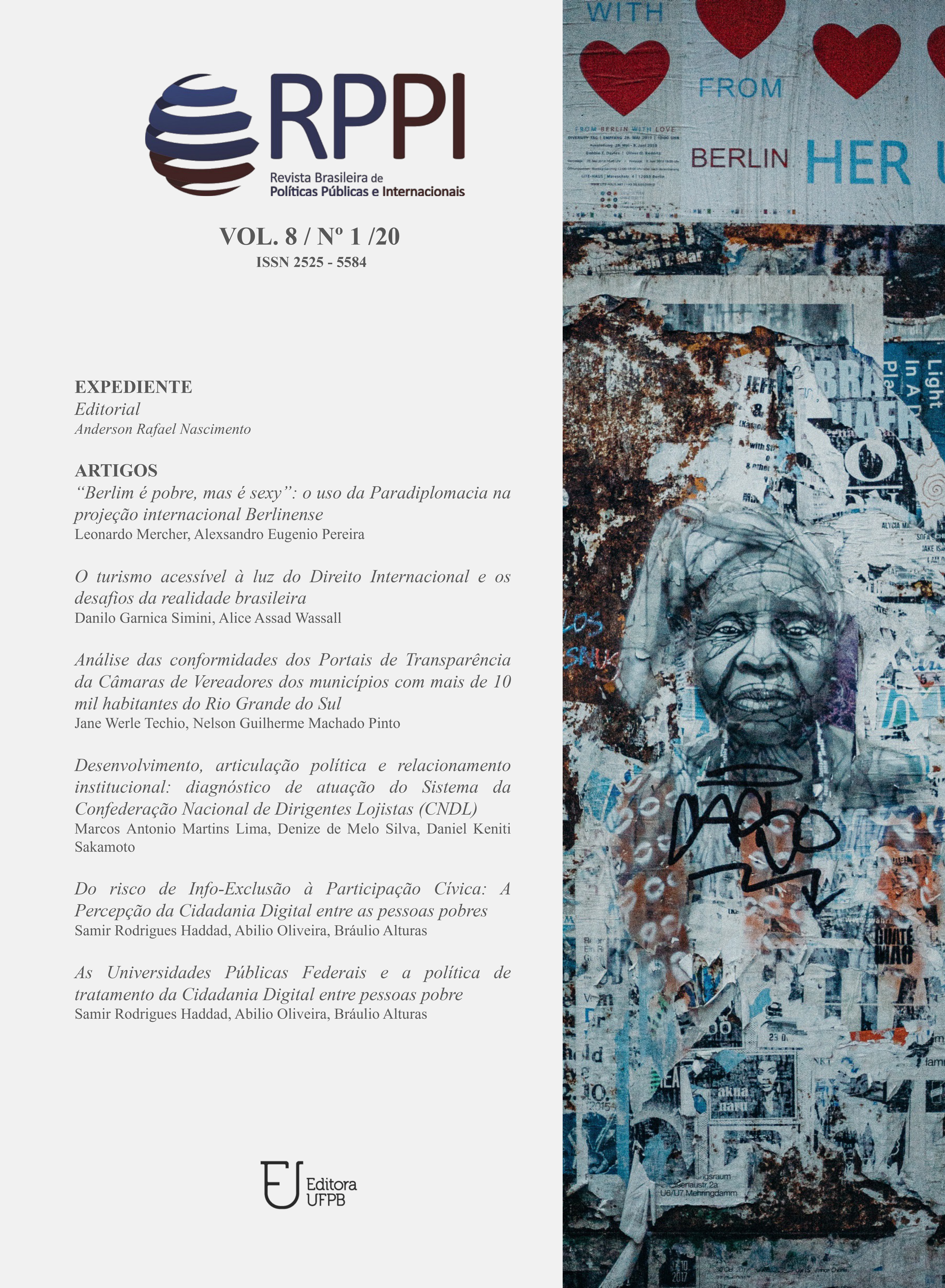The meaning and importance of (e-digital) citizenship for poor populations: A case study in Belo Horizonte, Brazil
DOI:
https://doi.org/10.22478/ufpb.2525-5584.2023v8n1.64713Keywords:
“digital citizenship”; dimensions; indicators; “principal component analysis”Abstract
In Brazil, even after 21 years of implementing digital inclusion policies, there is still a shortage of dimensions and indicators for the construction of statistical models to assess the effectiveness of these policies in terms of the exercise of citizenship, as a way of contributing to the reduction of infoexclusion in a global context of rising poverty levels in recent decades. The present study explores the meaning and the importance of citizenship for the poor through a questionnaire answered by 515 users from 84 telecenters in Belo Horizonte, Brazil. Using Principal Component Analysis (PCA), three dimensions with 31 indicators were obtained for citizenship and three dimensions with 33 indicators for digital citizenship. Assessed in the context of today's society, these dimensions proved to be complementary and inseparable for the effective exercise of citizenship. Thus, the results of this study contribute to the improvement of public policies for digital inclusion and fighting poverty.
Downloads
Downloads
Published
Issue
Section
License
Copyright (c) 2023 Samir Rodrigues Haddad, Abilio Oliveira, Bráulio Alturas

This work is licensed under a Creative Commons Attribution 4.0 International License.
Autores que publicam nesta revista concordam com os seguintes termos:- Autores mantém os direitos autorais e concedem à revista o direito de primeira publicação, com o trabalho simultaneamente licenciado sob a Licença Creative Commons Attribution que permite o compartilhamento do trabalho com reconhecimento da autoria e publicação inicial nesta revista.
- Autores têm autorização para assumir contratos adicionais separadamente, para distribuição não-exclusiva da versão do trabalho publicada nesta revista (ex.: publicar em repositório institucional ou como capítulo de livro), com reconhecimento de autoria e publicação inicial nesta revista.
- Autores têm permissão e são estimulados a publicar e distribuir seu trabalho online (ex.: em repositórios institucionais ou na sua página pessoal) a qualquer ponto antes ou durante o processo editorial, já que isso pode gerar alterações produtivas, bem como aumentar o impacto e a citação do trabalho publicado (Veja O Efeito do Acesso Livre).




_.jpg)






.png)


.jpg)
_.png)
